#thank you to my friend david who did heavys drawing of medic
Text
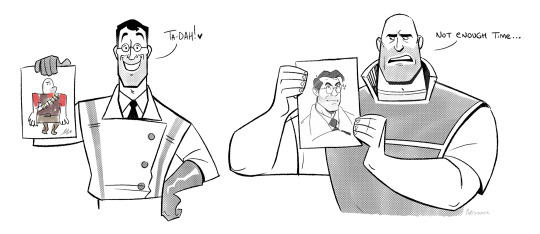
two artists
#tf2#tf2 fanart#team fortress 2#tf2 medic#tf2 heavy#heavymedic#thank you to my friend david who did heavys drawing of medic#and my boyfriend who did medics drawing of heavy#my boyfriend described heavy as 'homestar runners face on a square and he has big fingers and wears sasuages'#he's so wise
4K notes
·
View notes
Text
The Best Films of 2020
I can’t tell you anything novel or insightful about this year that has been stolen from our lives. I watched zero of these films in a theater, and I watched most of them half-asleep in moments that I stole from my children. Don’t worry, there are some jokes below.
GARBAGE
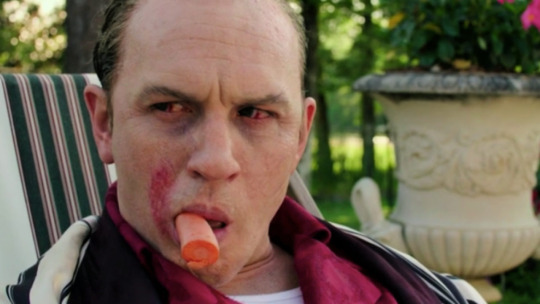
93. Capone (Josh Trank)- What is the point of this dinner theater trash? It takes place in the last year of Capone's life, when he was released from prison due to failing health and suffered a stroke in his Florida home. So it covers...none of the things that make Al Capone interesting? It's not historically accurate, which I have no problem with, but if you steer away from accuracy, then do something daring and exciting. Don't give me endless scenes of "Phonse"--as if the movie is running from the very person it's about--drawing bags of money that promise intrigue, then deliver nothing in return.
That being said, best "titular character shits himself" scene since The Judge.
92. Ammonite (Francis Lee)- I would say that this is the Antz to Portrait of a Lady on Fire's A Bug's Life, but it's actually more like the Cars 3 to Portrait of a Lady on Fire's Toy Story 1.
91. Ava (Tate Taylor)- Despite the mystery and inscrutability that usually surround assassins, what if we made a hitman movie but cared a lot about her personal life? Except neither the assassin stuff nor the family stuff is interesting?
90. Wonder Woman 1984 (Patty Jenkins)- What a miscalculation of what audiences loved about the first and wanted from the sequel. WW84 is silly and weightless in all of the ways that the first was elegant and confident. If the return of Pine is just a sort of phantom representation of Diana's desires, then why can he fly a real plane? If he is taking over another man's soul, then, uh, what ends up happening to that guy? For that matter, why is it not 1984 enough for Ronald Reagan to be president, but it is 1984 enough for the president to have so many Ronald Reagan signifiers that it's confusing? Why not just make a decision?
On paper, the me-first values of the '80s lend themselves to the monkey's paw wish logic of this plot. You could actually do something with the Star Wars program or the oil crisis. But not if the setting is played for only laughs and the screenplay explains only what it feels like.
89. Babyteeth (Shannon Murphy)- In this type of movie, there has to be a period of the Ben Mendelsohn character looking around befuddled about the new arrangement and going, "What's this now--he's going to be...living with us? The guy who tried to steal our medication? This is crazy!" But that's usually ten minutes, and in this movie it's an hour. I was so worn out by the end.
88. You Should Have Left (David Koepp)- David Koepp wrote Jurassic Park, so he's never going to hell, but how dare he start caring about his own mystery at the hour mark. There's a forty-five minute version of this movie that could get an extra star from me, and there's a three-hour version of Amanda Seyfried walking around in athleisure that would get four stars from me. What we actually get? No thanks.
87. Black Is King (Beyonce, et al.)- End your association with The Lion King, Bey. It has resulted in zero bops.
ADMIRABLE FAILURES
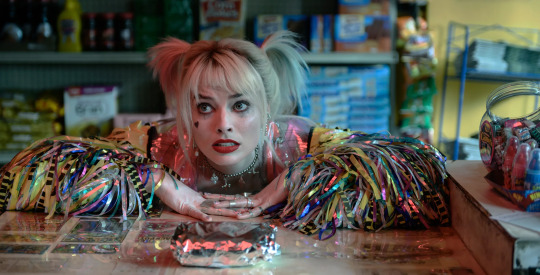
86. Birds of Prey (And the Fantabulous Emancipation of One Harley Quinn) (Cathy Yan)- There's nothing too dysfunctional in the storytelling or performances, but Birds of Prey also doesn't do a single thing well. I would prefer something alive and wild, even if it were flawed, to whatever tame belt-level formula this is.
85. The Turning (Floria Sigismondi)- This update of The Turn of the Screw pumps the age of Miles up to high school, which creates some horny creepiness that I liked. But the age of the character also prevents the ending of the novel from happening in favor of a truly terrible shrug. I began to think that all of the patience that the film showed earlier was just hesitance for its own awful ending.
I watched The Turning as a Mackenzie Davis Movie Star heat check, and while I'm not sure she has the magnetism I was looking for, she does have a great teacher voice, chastening but maternal.
84. Bloodshot (David Wilson)- A whole lot of Vin Diesel saying he's going to get revenge and kill a bunch of dudes; not a whole lot of Vin Diesel actually getting revenge and killing a bunch of dudes.
83. Downhill (Nat Faxon and Jim Rash)- I was an English major in college, which means I ended up locking myself into literary theories that, halfway through the writing of an essay, I realized were flawed. But rather than throw out the work that I had already proposed, I would just keep going and see if I could will the idea to success.
So let's say you have a theory that you can take Force Majeure by Ruben Ostlund, one of the best films of its year, and remake it so that its statement about familial anxiety could apply to Americans of the same age and class too...if it hadn't already. And maybe in the first paragraph you mess up by casting Will Ferrell and Julia Louis-Dreyfus, people we are conditioned to laugh at, when maybe this isn't that kind of comedy at all. Well, don't throw it away. You can quote more--fill up the pages that way--take an exact shot or scene from the original. Does that help? Maybe you can make the writing more vigorous and distinctive by adding a character. Is that going to make this baby stand out? Maybe you could make it more personal by adding a conclusion that is slightly more clever than the rest of the paper?
Or perhaps this is one you're just not going to get an A on.
82. Hillbilly Elegy (Ron Howard)- I watched this melodrama at my mother's encouragement, and, though I have been trying to pin down her taste for decades, I think her idea of a successful film just boils down to "a lot of stuff happens." So in that way, Ron Howard's loss is my gain, I guess.
There is no such thing as a "neutral Terminator."
81. Relic (Natalie Erika James)- The star of the film is Vanessa Cerne's set decoration, but the inert music and slow pace cancel out a house that seems neglected slowly over decades.
80. Buffaloed (Tanya Wexler)- Despite a breathless pace, Buffaloed can't quite congeal. In trying to split the difference between local color hijinks and Moneyballed treatise on debt collection, it doesn't commit enough to either one.
Especially since Zoey Deutch produced this one in addition to starring, I'm getting kind of worried about boo's taste. Lot of Two If by Seas; not enough While You Were Sleepings.
79. Like a Boss (Miguel Arteta)- I chuckled a few times at a game supporting cast that is doing heavy lifting. But Like a Boss is contrived from the premise itself--Yeah, what if people in their thirties fell out of friendship? Do y'all need a creative consultant?--to the escalation of most scenes--Why did they have to hide on the roof? Why do they have to jump into the pool?
The movie is lean, but that brevity hurts just as much as it helps. The screenplay knows which scenes are crucial to the development of the friendship, but all of those feel perfunctory, in a different gear from the setpieces.
To pile on a bit: Studio comedies are so bare bones now that they look like Lifetime movies. Arteta brought Chuck & Buck to Sundance twenty years ago, and, shot on Mini-DV for $250,000, it was seen as a DIY call-to-bootstraps. I guarantee that has more setups and locations and shooting days than this.
78. Eurovision Song Contest: The Story of Fire Saga (David Dobkin)- Add Dan Stevens to the list of supporting players who have bodied Will Ferrell in his own movie--one that he cared enough to write himself.
Like Downhill, Ferrell's other 2020 release, this isn't exactly bad. It's just workmanlike and, aside from the joke about Demi Lovato's "uninformed" ghost, frustratingly conventional.
77. The Traitor (Marco Bellochio)- Played with weary commitment by Pierfrancesco Favino, Tomasso Buscetta is "credited" as the first informant of La Cosa Nostra. And that sounds like an interesting subject for a "based on a true story" crime epic, right? Especially when you find out that Buscetta became a rat out of principle: He believed that the mafia to which he had pledged his life had lost its code to the point that it was a different organization altogether.
At no point does Buscetta waver or even seem to struggle with his decision though, so what we get is less conflicted than that description might suggest. None of these Italian mob movies glorify the lifestyle, so I wasn't expecting that. But if the crime doesn't seem enticing, and snitching on the crime seems like forlorn duty, and everything is pitched with such underhanded matter-of-factness that you can't even be sure when Buscetta has flipped, then what are we left with? It was interesting seeing how Italian courts work, I guess?
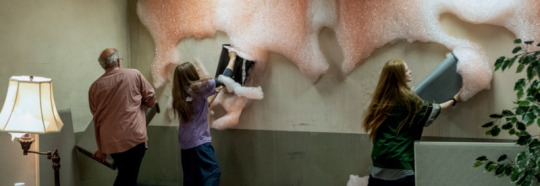
76. Kajillionaire (Miranda July)- This is another movie so intent on building atmosphere and lore that it takes too long to declare what it is. When the protagonist hits a breaking point and has to act, she has only a third of a film to grow. So whispery too.
Gina Rodriguez is the one to inject life into it. As soon as her motormouth winds up, the film slips into a different gear. The atmosphere and lore that I mentioned reeks of artifice, but her character is believably specific. Beneath a basic exterior is someone who is authentically caring but still morally compromised, beholden to the world that the other characters are suspicious of.
75. Scoob! (Tony Cervone)- The first half is sometimes clever, but it hammers home the importance of friendship while separating the friends.
The second half has some positive messaging, but your kids' movie might have a problem with scale if it involves Alexander the Great unlocking the gates of the Underworld.
My daughter loved it.
74. The Lovebirds (Michael Showalter)- If I start talking too much about this perfectly fine movie, I end up in that unfair stance of reviewing the movie I wanted, not what is actually there.* As a fan of hang-out comedies, I kind of resent that any comedy being made now has to be rolled into something more "exciting," whether it's a wrongfully accused or mistaken identity thriller or some other genre. Such is the post-Game Night world. There's a purposefully anti-climactic note that I wish The Lovebirds had ended on, but of course we have another stretch of hiding behind boats and shooting guns. Nanjiani and Rae are really charming leads though.
*- As a New Orleanian, I was totally distracted by the fake aspects of the setting too. "Oh, they walked to Jefferson from downtown? Really?" You probably won't be bothered by the locations.
73. Sonic the Hedgehog (Jeff Fowler)- In some ways the storytelling is ambitious. (I'm speaking for only myself, but I'm fine with "He's a hedgehog, and he's really fast" instead of the owl mother, teleportation backstory. Not everything has to be Tolkien.) But that ambition doesn't match the lack of ambition in the comedy, which depends upon really hackneyed setups and structures. Guiding Jim Carrey to full alrighty-then mode was the best choice anyone made.
72. Malcolm & Marie (Sam Levinson)- The stars move through these long scenes with agility and charisma, but the degree of difficulty is just too high for this movie to reach what it's going for.
Levinson is trying to capture an epic fight between a couple, and he can harness the theatrical intensity of such a thing, but he sacrifices almost all of the nuance. In real life, these knock-down-drag-outs can be circular and indirect and sad in a way that this couple's manipulation rarely is. If that emotional truth is all this movie is trying to achieve, I feel okay about being harsh in my judgment of how well it does that.
71. Beanpole (Kantemir Balagov)- Elusive in how it refuses to declare itself, forthright in how punishing it is. The whole thing might be worth it for a late dinner scene, but I'm getting a bit old to put myself through this kind of misery.
70. The Burnt Orange Heresy (Giuseppe Capotondi)- Silly in good ways until it's silly in bad ways. Elizabeth Debicki remains 6'3".
69. Everybody’s Everything (Sebastian Jones and Ramez Silyan)- As a person who listened to Lil Peep's music, I can confidently say that this documentary is overstating his greatness. His death was a significant loss, as the interview subjects will all acknowledge, but the documentary is more useful as a portrait of a certain unfocused, rapacious segment of a generation that is high and online at all times.
68. The Witches (Robert Zemeckis)- Robert Zemeckis, Kenya Barris, and Guillermo Del Toro are the credited screenwriters, and in a fascinating way, you can see the imprint of each figure on the final product. Adapting a very European story to the old wives' tales of the American South is an interesting choice. Like the Nicolas Roeg try at this material, Zemeckis is not afraid to veer into the terrifying, and Octavia Spencer's pseudo witch doctor character only sells the supernatural. From a storytelling standpoint though, it seems as if the obstacles are overcome too easily, as if there's a whole leg of the film that has been excised. The framing device and the careful myth-making of the flashback make promises that the hotel half of the film, including the abrupt ending, can't live up to.
If nothing else, Anne Hathaway is a real contender for Most On-One Performance of the year.
67. Irresistible (Jon Stewart)- Despite a sort of imaginative ending, Jon Stewart's screenplay feels more like the declarative screenplay that would get you hired for a good movie, not a good screenplay itself. It's provocative enough, but it's clumsy in some basic ways and never evades the easy joke.
For example, the Topher Grace character is introduced as a sort of assistant, then is re-introduced an hour later as a polling expert, then is shown coaching the candidate on presentation a few scenes later. At some point, Stewart combined characters into one role, but nothing got smoothed out.
ENDEARING CURIOSITIES WITH BIG FLAWS
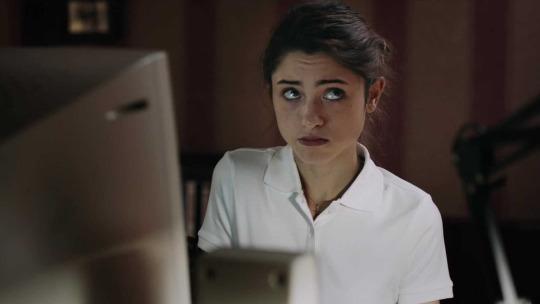
66. Yes, God, Yes (Karen Maine)- Most people who are Catholic, including me, are conflicted about it. Most people who make movies about being Catholic hate it and have an axe to grind. This film is capable of such knowing wit and nuance when it comes to the lived-in details of attending a high school retreat, but it's more concerned with taking aim at hypocrisy in the broad way that we've seen a million times. By the end, the film is surprisingly all-or-nothing when Christian teenagers actually contain multitudes.
Part of the problem is that Karen Maine's screenplay doesn't know how naive to make the Alice character. Sometimes she's reasonably naive for a high school senior in 2001; sometimes she's comically naive so that the plot can work; and sometimes she's stupid, which isn't the same as naive.
65. Bad Boys for Life (Adil El Arbi and Bilall Fallah)- This might be the first buddy cop movie in which the vets make peace with the tech-comm youngs who use new techniques. If that's the only novelty on display here--and it is--then maybe that's enough. I laughed maybe once. Not that the mistaken identity subplot of Bad Boys 1 is genius or anything, but this entry felt like it needed just one more layer to keep it from feeling as basic as it does. Speaking of layers though, it's almost impossible to watch any Will Smith movie now without viewing it through the meta-narrative of "What is Will Smith actually saying about his own status at this point in his career?" He's serving it up to us.
I derived an inordinate amount of pleasure from seeing the old school Simpson/Bruckheimer logo.
64. The Gentlemen (Guy Ritchie)- Look, I'm not going to be too negative on a movie whose crime slang is so byzantine that it has to be explained with subtitles. That's just me. I'm a simple man. But I can tell you that I tuned out pretty hard after seven or eight double-crosses.
The bloom is off the rose a bit for Ritchie, but he can still nail a music cue. I've been waiting for someone to hit "That's Entertainment" the way he does on the end credits.
63. Bad Hair (Justin Simien)- In Bad Hair, an African-American woman is told by her boss at a music video channel in 1989 that straightening her hair is the way to get ahead; however, her weave ends up having a murderous mind of its own. Compared to that charged, witty logline, the execution of the plot itself feels like a laborious, foregone conclusion. I'm glad that Simien, a genuinely talented writer, is making movies again though. Drop the skin-care routine, Van Der Beek!
62. Greyhound (Aaron Schneider)- "If this is the type of role that Tom Hanks writes for himself, then he understands his status as America's dad--'wise as the serpent, harmless as the dove'--even better than I thought."
"America's Dad! Aye aye, sir!"
"At least half of the dialogue is there for texture and authenticity, not there to be understood by the audience."
"Fifty percent, Captain!"
"The environment looks as fake as possible, but I eventually came around to the idea that the movie is completely devoid of subtext."
"No subtext to be found, sir!"
61. Mank (David Fincher)- About ten years ago, the Creative Screenwriting podcast spent an hour or so with James Vanderbilt, the writer of Zodiac and nothing else that comes close, as he relayed the creative paces that David Fincher pushed him through. Hundreds of drafts and years of collaborative work eventuated in the blueprint for Fincher's most exacting, personal film, which he didn't get a writing credit on only because he didn't seek one.
Something tells me that Fincher didn't ask for rewrites from his dead father. No matter what visuals and performances the director can coax from the script--and, to be clear, these are the worst visuals and performances of his career--they are limited by the muddy lightweight pages. There are plenty of pleasures, like the slippery election night montage or the shakily platonic relationship between Mank and Marion. But Fincher hadn't made a film in six years, and he came back serving someone else's master.
60. Tesla (Michael Almereyda)-
"You live inside your head."
"Doesn't everybody?"
As usual, Almereyda's deconstructions are invigorating. (No other moment can match the first time Eve Hewson's Anne fact-checks something with her anachronistic laptop.) But they don't add up to anything satisfying because Tesla himself is such an opaque figure. Driven by the whims of his curiosity without a clear finish line, the character gives Hawke something enigmatic to play as he reaches deep into a baritone. But he's too inward to lend himself to drama. Tesla feels of a piece with Almereyda's The Experimenter, and that's the one I would recommend.
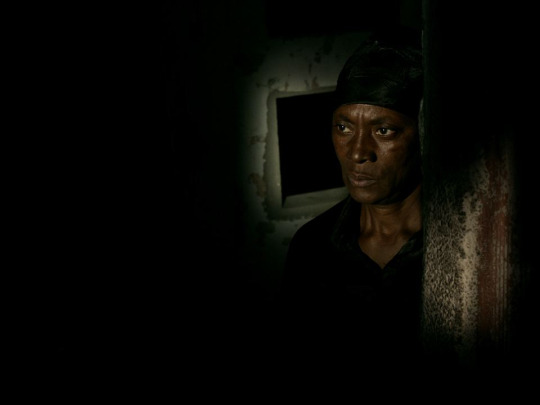
59. Vitalina Varela (Pedro Costa)- I can't oversell how delicately beautiful this film is visually. There's a scene in which Vitalina lugs a lantern into a church, but we get several seconds of total darkness before that one light source carves through it and takes over part of the frame. Each composition is as intricate as it is overpowering, achieving a balance between stark and mannered.
That being said, most of the film is people entering or exiting doors. I felt very little of the haunting loss that I think I was supposed to.
58. The Rhythm Section (Reed Morano)- Call it the Timothy Hutton in The General's Daughter Corollary: If a name-actor isn't in the movie much but gets third billing, then, despite whom he sends the protagonist to kill, he is the Actual Bad Guy.
Even if the movie serves up a lot of cliche, the action and sound design are visceral. I would like to see more from Morano.
57. Red, White and Blue (Steve McQueen)- Well-made and heartfelt even if it goes step-for-step where you think it will.
Here's what I want to know though: In the academy training sequence, the police cadets have to subdue a "berserker"; that is, a wildman who swings at their riot gear with a sledgehammer. Then they get him under control, and he shakes their hands, like, "Good angle you took on me there, mate." Who is that guy and where is his movie? Is this full-time work? Is he a police officer or an independent contractor? What would happen if this exercise didn't go exactly as planned?
56. Wolfwalkers (Tomm Moore and Ross Stewart)- The visuals have an unfinished quality that reminded me of The Tale of Princess Kaguya--the center of a flame is undrawn white, and fog is just negative space. There's an underlying symmetry to the film, and its color palette changes with mood.
Narratively, it's pro forma and drawn-out. Was Riley in Inside Out the last animated protagonist to get two parents? My daughter stuck with it, but she needed a lot of context for the religious atmosphere of 17th century Ireland.
55. What She Said: The Art of Pauline Kael (Rob Garver)- The film does little more than one might expect; it's limited in the way that any visual medium is when trying to sum up a woman of letters. But as far as education for Kael's partnership with Warren Beatty or the idea of The New Yorker paying her for only six months out of the year, it was useful for me.
Although Garver isn't afraid to point to the work that made Kael divisive, it would have been nice to have one or two interview subjects who questioned her greatness, rather than the crew of Paulettes who, even when they do say something like, "Sometimes I radically disagreed with her," do it without being able to point to any specifics.
54. Beastie Boys Story (Spike Jonze)- As far as this Spike Jonze completist is concerned, this is more of a Powerpoint presentation than a movie, Beastie Boys Story still warmed my heart, making me want to fire up Paul's Boutique again and take more pictures of my buddies.
53. Tenet (Christopher Nolan)- Cool and cold, tantalizing and frustrating, loud and indistinct, Tenet comes close to Nolan self-parody, right down to the brutalist architecture and multiple characters styled like him. The setpieces grabbed me, I'll admit.
Nolan's previous film, which is maybe his best, was "about" a lot and just happened to play with time; Tenet is only about playing with time.
PRETTY GOOD MOVIES
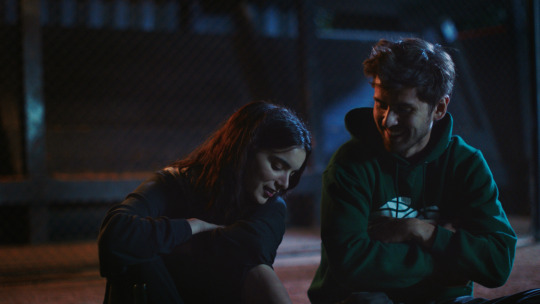
52. Shithouse (Cooper Raiff)- "Death is ass."
There's such a thing as too naturalistic. If I wanted to hear how college freshmen really talked, I would hang out with college freshmen. But you have to take the good verisimilitude with the bad, and good verisimilitude is the mother's Pod Save America t-shirt.
There are some poignant moments (and a gonzo performance from Logan Miller) in this auspicious debut from Cooper Raiff, the writer/director/editor/star. But the second party sequence kills some of the momentum, and at a crucial point, the characters spell out some motivation that should have stayed implied.
51. Totally Under Control (Alex Gibney, Ophelia Harutyunyan, Suzanne Hillinger)- As dense and informative as any other Gibney documentary with the added flex of making it during the pandemic it is investigating.
But yeah, why am I watching this right now? I don't need more reasons to be angry with Trump, whom this film calmly eviscerates. The directors analyze Trump's narcissism first through his contradictions of medical expertise in order to protect the economy that could win him re-election. Then it takes aim at his hiring based on loyalty instead of experience. But you already knew that, which is the problem with the film, at least for now.
50. Happiest Season (Clea Duvall)- I was in the perfect mood to watch something this frothy and bouncy. Every secondary character receives a moment in the sun, and Daniel Levy gets a speech that kind of saves the film at a tipping point.
I must say though: I wanted to punch Harper in her stupid face. She is a terrible romantic partner, abandoning or betraying Abby throughout the film and dissembling her entire identity to everyone else in a way that seems absurd for a grown woman in 2020. Run away, Kristen. Perhaps with Aubrey Plaza, whom you have more chemistry with. But there I go shipping and aligning myself with characters, which only proves that this is an effective romantic comedy.
49. The Way Back (Gavin O’Connor)- Patient but misshapen, The Way Back does just enough to overcome the cliches that are sort of unavoidable considering the genre. (I can't get enough of the parent character who, for no good reason, doesn't take his son's success seriously. "Scholarship? What he's gotta do is put his nose in them books! That's why I don't go to his games. [continues moving boxes while not looking at the other character] Now if you'll excuse me while I wait four scenes before showing up at a game to prove that I'm proud of him after all...")
What the movie gets really right or really wrong in the details about coaching and addiction is a total crap-shoot. But maybe I've said too much already.
48. The Whistlers (Corneliu Porumboiu)- Porumboiu is a real artist who seems to be interpreting how much surveillance we're willing to acknowledge and accept, but I won't pretend to have understood much of the plot, the chapters or which are told out of order. Sometimes the structure works--the beguiling, contextless "high-class hooker" sequence--but I often wondered if the film was impenetrable in the way that Porumboiu wanted it to be or impenetrable in the way he didn't.
To tell you the truth, the experience kind of depressed me because I know that, in my younger days, this film is the type of thing that I would re-watch, possibly with the chronology righted, knowing that it is worth understanding fully. But I have two small children, and I'm exhausted all the time, and I kind of thought I should get some credit for still trying to catch up with Romanian crime movies in the first place.
47. Borat Subsequent Moviefilm (Jason Woliner)- I laughed too much to get overly critical, but the film is so episodic and contrived that it's kind of exhausting by the end--even though it's achieving most of its goals. Maybe Borat hasn't changed, but the way our citizens own their ugliness has.
46. First Cow (Kelly Reichardt)- Despite how little happens in the first forty minutes, First Cow is a thoughtful capitalism parable. Even though it takes about forty minutes to get going, the friendship between Cookie and King-Lu is natural and incisive. Like Reichardt's other work, the film's modest premise unfolds quite gracefully, except for in the first forty minutes, which are uneventful.
45. Les Miserables (Ladj Ly)- I loved parts of the film--the disorienting, claustrophobic opening or the quick look at the police officers' home lives, for example. But I'm not sure that it does anything very well. The needle the film tries to thread between realism and theater didn't gel for me. The ending, which is ambiguous in all of the wrong ways, chooses the theatrical. (If I'm being honest, my expectations were built up by Les Miserables' Jury Prize at Cannes, and it's a bit superficial to be in that company.)
If nothing else, it's always helpful to see how another country's worst case scenario in law enforcement would look pretty good over here.
44. Bad Education (Cory Finley)- The film feels too locked-down and small at the beginning, so intent on developing the protagonist neutrally that even the audience isn't aware of his secrets. So when he faces consequences for those secrets, there's a disconnect. Part of tragedy is seeing the doom coming, right?
When it opens up, however, it's empathetic and subtle, full of a dry irony that Finley is already specializing in after only one other feature. Geraldine Viswanathan and Allison Janney get across a lot of interiority that is not on the page.
43. The Trip to Greece (Michael Winterbottom)- By the fourth installment, you know whether you're on board with the franchise. If you're asking "Is this all there is?" to Coogan and Brydon's bickering and impressions as they're served exotic food in picturesque settings, then this one won't sway you. If you're asking "Is this all there is?" about life, like they are, then I don't need to convince you.
I will say that The Trip to Spain seemed like an enervated inflection point, at which the squad could have packed it in. The Trip to Greece proves that they probably need to keep doing this until one of them dies, which has been the subtext all along.
42. Feels Good Man (Arthur Jones)- This documentary centers on innocent artist Matt Furie's helplessness as his Pepe the Frog character gets hijacked by the alt-right. It gets the hard things right. It's able to, quite comprehensively, trace a connection from 4Chan's use of Pepe the Frog to Donald Trump's near-assuming of Pepe's ironic deniability. Director Arthur Jones seems to understand the machinations of the alt-right, and he articulates them chillingly.
The easy thing, making us connect to Furie, is less successful. The film spends way too much time setting up his story, and it makes him look naive as it pits him against Alex Jones in the final third. Still, the film is a quick ninety-two minutes, and the highs are pretty high.
41. The Old Guard (Gina Prince-Bythewood)- Some of the world-building and backstory are handled quite elegantly. The relationships actually do feel centuries old through specific details, and the immortal conceit comes together for an innovative final action sequence.
Visually and musically though, the film feels flat in a way that Prince-Bythewood's other films do not. I blame Netflix specs. KiKi Layne, who tanked If Beale Street Could Talk for me, nearly ruins this too with the child-actory way that she stresses one word per line. Especially in relief with one of our more effortless actresses, Layne is distracting.
40. The Trial of the Chicago 7 (Aaron Sorkin)- Whenever Sacha Baron Cohen's Abbie Hoffman opens his mouth, the other defendants brace themselves for his dismissive vulgarity. Even when it's going to hurt him, he can't help but shoot off at the mouth. Of course, he reveals his passionate and intelligent depths as the trial goes on. The character is the one that Sorkin's screenplay seems the most endeared to: In the same way that Hoffman can't help but be Hoffman, Sorkin can't help but be Sorkin. Maybe we don't need a speech there; maybe we don't have to stretch past two hours; maybe a bon mot diffuses the tension. But we know exactly what to expect by now. The film is relevant, astute, witty, benevolent, and, of course, in love with itself. There are a handful of scenes here that are perfect, so I feel bad for qualifying so much.
A smaller point: Daniel Pemberton has done great work in the past (Motherless Brooklyn, King Arthur, The Man from U.N.C.L.E.), but the first sequence is especially marred by his sterile soft-rock approach.
GOOD MOVIES
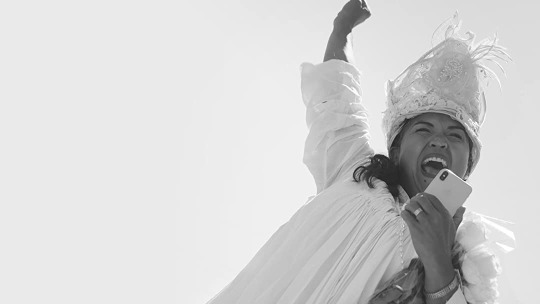
39. Time (Garrett Bradley)- The key to Time is that it provides very little context. Why the patriarch of this family is serving sixty years in prison is sort of besides the point philosophically. His wife and sons have to move on without him, and the tragedy baked into that fact eclipses any notion of what he "deserved." Feeling the weight of time as we switch back and forth between a kid talking about his first day of kindergarten and that same kid graduating from dentistry school is all the context we need. Time's presentation can be quite sumptuous: The drone shot of Angola makes its buildings look like crosses. Or is it X's?
At the same time, I need some context. When director Garrett Bradley withholds the reason Robert's in prison, and when she really withholds that Fox took a plea and served twelve years, you start to see the strings a bit. You could argue that knowing so little about why, all of a sudden, Robert can be on parole puts you into the same confused shoes as the family, but it feels manipulative to me. The film is preaching to the choir as far as criminal justice goes, which is fine, but I want it to have the confidence to tell its story above board.
38. Bloody Nose, Empty Pockets (Turner Ross and Bill Ross IV)- I have a barfly friend whom I see maybe once a year. When we first set up a time to meet, I kind of dread it and wonder what we'll have to talk about. Once we do get together, we trip on each other's words a bit, fumbling around with the rhythm of conversation that we mastered decades ago. He makes some kind of joke that could have been appropriate then but isn't now.
By the end of the day, hours later, we're hugging and maybe crying as we promise each other that we won't wait as long next time.
That's the exact same journey that I went on with this film.
37. Underwater (William Eubank)- Underwater is a story that you've seen before, but it's told with great confidence and economy. I looked up at twelve minutes and couldn't believe the whole table had been set. Kristen plays Ripley and projects a smart, benevolent poise.
36. The Lodge (Veronika Franz and Severin Fiala)- I prefer the grounded, manicured first half to the more fantastic second half. The craziness of the latter is only possible through the hard work of the former though. As with Fiala and Franz's previous feature, the visual rhymes and motifs get incorporated into the soup so carefully that you don't realize it until they overwhelm you in their bleak glory.
Small note: Alicia Silverstone, the male lead's first wife, and Riley Keough, his new partner, look sort of similar. I always think that's a nice note: "I could see how he would go for her."
35. Miss Americana (Lana Wilson)- I liked it when I saw it as a portrait of a person whose life is largely decided for her but is trying to carve out personal spaces within that hamster wheel. I loved it when I realized that describes most successful people in their twenties.
34. Sound of Metal (Darius Marder)- Riz Ahmed is showing up on all of the best performances of the year lists, but Sound of Metal isn't in anyone's top ten films of the year. That's about right. Ahmed's is a quiet, stubborn performance that I wish was in service of more than the straight line that we've seen before.
In two big scenes, there's this trick that Ahmed does, a piecing together of consequences with his eyes, as if he's moving through a flow chart in real time. In both cases, the character seems locked out and a little slower than he should be, which is, of course, why he's facing the consequences in the first place. To be charitable to a film that was a bit of a grind, it did make me notice a thing a guy did with his eyes.
33. Pieces of a Woman (Kornel Mundruczo)- Usually when I leave acting showcases like this, I imagine the film without the Oscar-baiting speeches, but this is a movie that specializes in speeches. Pieces of a Woman is being judged, deservedly so, by the harrowing twenty-minute take that opens the film, which is as indulgent as it is necessary. But if the unbroken take provides the "what," then the speeches provide the "why."
This is a film about reclaiming one's body when it rebels against you and when other people seek ownership of it. Without the Ellen Burstyn "lift your head" speech or the Vanessa Kirby show-stopper in the courtroom, I'm not sure any of that comes across.
I do think the film lets us off the hook a bit with the LaBoeuf character, in the sense that it gives us reasons to dislike him when it would be more compelling if he had done nothing wrong. Does his half-remembering of the White Stripes count as a speech?
32. Ma Rainey’s Black Bottom (George C. Wolfe)- This is such a play, not only in the locked-down location but also through nearly every storytelling convention: "Where are the two most interesting characters? Oh, running late? They'll enter separately in animated fashion?" But, to use the type of phrase that the characters might, "Don't hate the player; hate the game."
Perhaps the most theatrical note in this treatise on the commodification of expression is the way that, two or three times, the proceedings stop in their tracks for the piece to declare loudly what it's about. In one of those clear-outs, Boseman, who looks distractingly sick, delivers an unforgettable monologue that transports the audience into his character's fragile, haunted mind. He and Viola Davis are so good that the film sort of buckles under their weight, unsure of how to transition out of those spotlight moments and pretend that the story can start back up. Whatever they're doing is more interesting than what's being achieved overall.
31. Another Round (Thomas Vinterberg)- It's definitely the film that Vinterberg wanted to make, but despite what I think is a quietly shattering performance from Mikkelsen, Another Round moves in a bit too much of a straight line to grab me fully. The joyous final minutes hint at where it could have gone, as do pockets of Vinterberg's filmography, which seems newly tethered to realism in a way that I don't like. The best sequences are the wildest ones, like the uproarious trip to the grocery store for fresh cod, so I don't know why so much of it takes place in tiny hallways at magic hour. I give the inevitable American remake* permission to use these notes.
*- Just spitballing here. Martin: Will Ferrell, Nikolaj (Nick): Ben Stiller, Tommy: Owen Wilson, Peter: Craig Robinson
30. The Invisible Man (Leigh Whannell)- Exactly what I wanted. Exactly what I needed.
I think a less conclusive finale would have been better, but what a model of high-concept escalation. This is the movie people convinced me Whannell's Upgrade was.
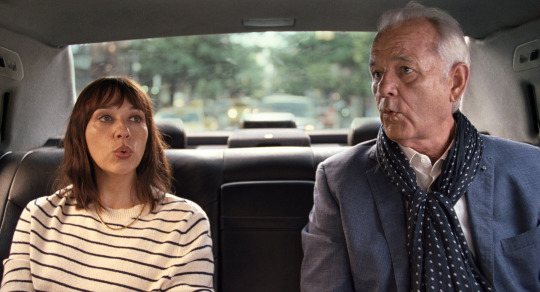
29. On the Rocks (Sofia Coppola)- Slight until the Mexican sojourn, which expands the scope and makes the film even more psychosexual than before. At times it feels as if Coppola is actively simplifying, rather than diving into the race and privilege questions that the Murray character all but demands.
As for Murray, is the film 50% worse without him? 70%? I don't know if you can run in supporting categories if you're the whole reason the film exists.
28. Mangrove (Steve McQueen)- The first part of the film seemed repetitive and broad to me. But once it settled in as a courtroom drama, the characterization became more shaded, and the filmmaking itself seemed more fluid. I ended up being quite outraged and inspired.
27. Shirley (Josephine Decker)- Josephine Decker emerges as a real stylist here, changing her foggy, impressionistic approach not one bit with a little more budget. Period piece and established actors be damned--this is still as much of a reeling fever dream as Madeline's Madeline. Both pieces are a bit too repetitive and nasty for my taste, but I respect the technique.
Here's my mandatory "Elisabeth Moss is the best" paragraph. While watching her performance as Shirley Jackson, I thought about her most famous role as Peggy on Mad Men, whose inertia and need to prove herself tied her into confidence knots. Shirley is almost the opposite: paralyzed by her worldview, certain of her talent, rejecting any empathy. If Moss can inhabit both characters so convincingly, she can do anything.
26. An American Pickle (Brandon Trost)- An American Pickle is the rare comedy that could actually use five or ten extra minutes, but it's a surprisingly heartfelt and wholesome stretch for Rogen, who is earnest in the lead roles.
25. The King of Staten Island (Judd Apatow)- At two hours and fifteen minutes, The King of Staten Island is probably the first Judd Apatow film that feels like the exact right length. For example, the baggy date scene between a gracious Bill Burr and a faux-dowdy Marisa Tomei is essential, the sort of widening of perspective that something like Trainwreck was missing.
It's Pete Davidson's movie, however, and though he has never been my cup of tea, I think he's actually quite powerful in his quiet moments. The movie probes some rare territory--a mentally ill man's suspicion that he is unlovable, a family's strategic myth-making out of respect for the dead. And when Davidson shows up at the firehouse an hour and fifteen minutes in, it feels as if we've built to a last resort.
24. Swallow (Carlo Mirabella-Davis)- The tricky part of this film is communicating Hunter's despair, letting her isolation mount, but still keeping her opaque. It takes a lot of visual discipline to do that, and Claudio Mirabella-Davis is up to the task. This ends up being a much more sympathetic, expressive movie than the plot description might suggest.
(In the tie dispute, Hunter and Richie are both wrong. That type of silk--I couldn't tell how pebbled it was, but it's probably a barathea weave-- shouldn't be ironed directly, but it doesn't have to be steamed. On a low setting, you could iron the back of the tie and be fine.)
23. The Vast of Night (Andrew Patterson)- I wanted a bit more "there" there; The film goes exactly where I thought it would, and there isn't enough humor for my taste. (The predictability might be a feature, not a bug, since the film is positioned as an episode of a well-worn Twilight Zone-esque show.)
But from a directorial standpoint, this is quite a promising debut. Patterson knows when to lock down or use silence--he even cuts to black to force us to listen more closely to a monologue. But he also knows when to fill the silence. There's a minute or so when Everett is spooling tape, and he and Fay make small talk about their hopes for the future, developing the characters' personalities in what could have been just mechanics. It's also a refreshingly earnest film. No one is winking at the '50s setting.
I'm tempted to write, "If Andrew Patterson can make this with $1 million, just imagine what he can do with $30 million." But maybe people like Shane Carruth have taught us that Patterson is better off pinching pennies in Texas and following his own muse.
22. Martin Eden (Pietro Marcello)- At first this film, adapted from a picaresque novel by Jack London, seemed as if it was hitting the marks of the genre. "He's going from job to job and meeting dudes who are shaping his worldview now." But the film, shot in lustrous Super 16, won me over as it owned the trappings of this type of story, forming a character who is a product of his environment even as he transcends it. By the end, I really felt the weight of time.
You want to talk about something that works better in novels than films though? When a passionate, independent protagonist insists that a woman is the love of his life, despite the fact that she's whatever Italians call a wet blanket. She's rich, but Martin doesn't care about her money. He hates her family and friends, and she refuses to accept him or his life pursuits. She's pretty but not even as pretty as the waitress they discuss. Tell me what I'm missing here. There's archetype, and there's incoherence.
21. Bacurau (Kleber Mendonca Filho and Juliano Dornelles)- Certain images from this adventurous film will stick with me, but I got worn out after the hard reset halfway through. As entranced as I was by the mystery of the first half, I think this blood-soaked ensemble is better at asking questions than it is at answering them.
20. Let Them All Talk (Steven Soderbergh)- The initial appeal of this movie might be "Look at these wonderful actresses in their seventies getting a movie all to themselves." And the film is an interesting portrait of ladies taking stock of relationships that have spanned decades. But Soderbergh and Eisenberg handle the twentysomething Lucas Hedges character with the same openness and empathy. His early reasoning for going on the trip is that he wants to learn from older women, and Hedges nails the puppy-dog quality of a young man who would believe that. Especially in the scenes of aspirational romance, he's sweet and earnest as he brushes his hair out of his face.
Streep plays Alice Hughes, a serious author of literary fiction, and she crosses paths with Kelvin Kranz, a grinder of airport thrillers. In all of the right ways, Let Them All Talk toes the line between those two stances as an entertaining, jaunty experiment that also shoulders subtextual weight. If nothing else, it's easy to see why a cruise ship's counterfeit opulence, its straight lines at a lean, would be visually engaging to Soderbergh. You can't have a return to form if your form is constantly evolving.
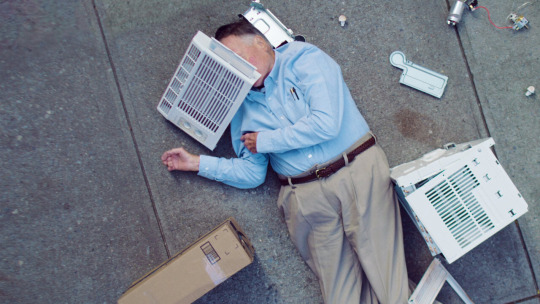
19. Dick Johnson Is Dead (Kirsten Johnson)- Understandably, I don't find the subject as interesting as his own daughter does, and large swaths of this film are unsure of what they're trying to say. But that's sort of the point, and the active wrestling that the film engages in with death ultimately pays off in a transcendent moment. The jaw-dropping ending is something that only non-fiction film can achieve, and Johnson's whole career is about the search for that sort of serendipity.
18. Da 5 Bloods (Spike Lee)- Delroy Lindo is a live-wire, but his character is the only one of the principals who is examined with the psychological depth I was hoping for. The first half, with all of its present-tense flourishes, promises more than the gunfights of the second half can deliver. When the film is cooking though, it's chock full of surprises, provocations, and pride.
17. Never Rarely Sometimes Always (Eliza Hittmann)- Very quickly, Eliza Hittmann has established herself as an astute, empathetic director with an eye for discovering new talent. I hope that she gets to make fifty more movies in which she objectively follows laconic young people. But I wanted to like this one more than I did. The approach is so neutral that it's almost flat to me, lacking the arc and catharsis of her previous film, Beach Rats. I still appreciate her restraint though.
GREAT MOVIES
16. Young Ahmed (Jean-Pierre Dardenne and Luc Dardenne)- I don't think the Dardennes have made a bad movie yet, and I'm glad they turned away from the slight genre dipping of The Unknown Girl, the closest to bad that they got. Young Ahmed is a lean, daring return to form.
Instead of following an average person, as they normally do, the Dardenne Brothers follow an extremist, and the objectivity that usually generates pathos now serves to present ambiguity. Ahmed says that he is changing, that he regrets his actions, but we never know how much of his stance is a put-on. I found myself wanting him to reform, more involved than I usually am in these slices of life. Part of it is that Idir Ben Addi looks like such a normal, young kid, and the Ahmed character has most of the qualities that we say we want in young people: principles, commitment, self-worth, reflection. So it's that much more destructive when those qualities are used against him and against his fellow man.
15. World of Tomorrow Episode Three: The Absent Destinations of David Prime (Don Hertzfeldt)- My dad, a man whom I love but will never understand, has dismissed modern music before by claiming that there are only so many combinations of chords. To him, it's almost impossible to do something new. Of course, this is the type of thing that an uncreative person would say--a person not only incapable of hearing the chords that combine notes but also unwilling to hear the space between the notes. (And obviously, that's the take of a person who doesn't understand that, originality be damned, some people just have to create.)
Anyway, that attitude creeps into my own thinking more than I would like, but then I watch something as wholly original as World of Tomorrow Episode Three. The series has always been a way to pile sci-fi ideas on top of each other to prove the essential truths of being and loving. And this one, even though it achieves less of a sense of yearning than its predecessor, offers even more devices to chew on. Take, for example, the idea that Emily sends her message from the future, so David's primitive technology can barely handle it. In order to move forward with its sophistication, he has to delete any extraneous skills for the sake of computer memory. So out of trust for this person who loves him, he has to weigh whether his own breathing or walking can be uninstalled as a sacrifice for her. I thought that we might have been done describing love, but there it is, a new metaphor. Mixing futurism with stick figures to get at the most pure drive possible gave us something new. It's called art, Dad.
14. On the Record (Kirby Dick and Amy Ziering)- We don't call subjects of documentaries "stars" for obvious reasons, but Drew Dixon kind of is one. Her honesty and wisdom tell a complete story of the #MeToo movement. Kirby Dick and Amy Ziering take their time developing her background at first, not because we need to "gain sympathy" or "establish credibility" for a victim of sexual abuse, but because showing her talent and enthusiasm for hip-hop A&R makes it that much more tragic when her passion is extinguished. Hell, I just like the woman, so spending a half-hour on her rise was pleasurable in and of itself.
This is a gut-wrenching, fearless entry in what is becoming Dick and Ziering's raison d'etre, but its greatest quality is Dixon's composed reflection. She helped to establish a pattern of Russell Simmons's behavior, but she explains what happened to her in ways I had never heard before.
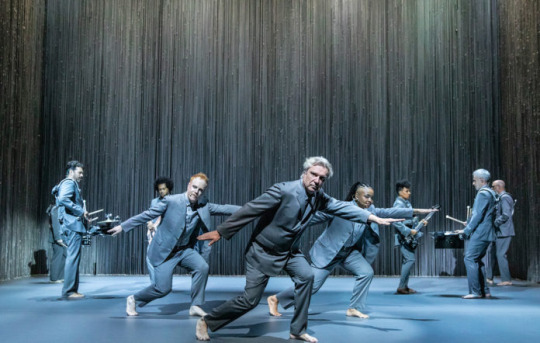
13. David Byrne’s American Utopia (Spike Lee)- I'm often impressed by the achievements that puzzle me: How did they pull that off? But I know exactly how David Byrne pulled off the impish but direct precision of American Utopia: a lot of hard work.
I can't blame Spike Lee for stealing a page from Demme's Stop Making Sense: He denies us a close-up of any audience members until two-thirds of the way through, when we get someone in absolute rapture.
12. One Night in Miami... (Regina King)- We've all cringed when a person of color is put into the position of speaking on behalf of his or her entire race. But the characters in One Night in Miami... live in that condition all the time and are constantly negotiating it. As Black public figures in 1964, they know that the consequences of their actions are different, bigger, than everyone else's. The charged conversations between Malcolm X and Sam Cooke are not about whether they can live normal lives. They're way past that. The stakes are closer to Sam Cooke arguing that his life's purpose aligns with the protection and elevation of African-Americans while Malcolm X argues that those pursuits should be the same thing. Late in the movie, Cassius Clay leaves the other men, a private conversation, to talk to reporters, a public conversation. But the film argues that everything these men do is always already public. They're the most powerful African-Americans in the country, but their lives are not their own. Or not only their own.
It's true that the first act has the clunkiness and artifice of a TV movie, but once the film settles into the motel room location and lets the characters feed off one another, it's gripping. It's kind of unfair for a movie to get this many scenes of Leslie Odom Jr. singing, but I'll take it.
11. Saint Frances (Alex Thompson)- Rilke wrote, "Perhaps everything terrible is in its deepest being something helpless that wants help from us." The characters' behavior in Saint Frances--all of these fully formed characters' behavior--made me think of that quotation. When they lash out at one another, even at their nastiest, the viewer has a window into how they're expressing pain they can't verbalize. The film is uneven in its subtlety, but it's a real showcase for screenwriter and star Kelly O'Sullivan, who is unflinching and dynamic in one of the best performances of the year. Somebody give her some of the attention we gave to Zach Braff for God's sake.
10. Boys State (Jesse Moss and Amanda McBaine)- This documentary is kind of a miracle from a logistical standpoint. From casting interviews beforehand, lots of editing afterwards, or sly note-taking once the conference began, McBaine and Moss happened to select the four principals who mattered the most at the convention, then found them in rooms full of dudes wearing the same tucked-in t-shirt. By the way, all of the action took place over the course of one week, and by definition, the important events are carved in half.
To call Boys State a microcosm of American politics is incorrect. These guys are forming platforms and voting in elections. What they're doing is American politics, so when they make the same compromises and mistakes that active politicians do, it produces dread and disappointment. So many of the boys are mimicking the political theater that they see on TV, and that sweaty sort of performance is going to make a Billy Mitchell out of this kid Ben Feinstein, and we'll be forced to reckon with how much we allow him to evolve as a person. This film is so precise, but what it proves is undeniably messy. Luckily, some of these seventeen-year-olds usher in hope for us all.
If nothing else, the film reveals the level to which we're all speaking in code.
9. The Nest (Sean Durkin)- In the first ten minutes or so of The Nest, the only real happy minutes, father and son are playing soccer in their quaint backyard, and the father cheats to score on a children's net before sliding on the grass to rub in his victory. An hour later, the son kicks the ball around by himself near a regulation goal on the family's massive property. The contrast is stark and obvious, as is the symbolism of the dead horse, but that doesn't mean it's not visually powerful or resonant.
Like Sean Durkin's earlier film, Martha Marcy May Marlene, the whole of The Nest is told with detail of novelistic scope and an elevation of the moment. A snippet of radio that mentions Ronald Reagan sets the time period, rather than a dateline. One kid saying "Thanks, Dad" and another kid saying, "Thanks, Rory" establishes a stepchild more elegantly than any other exposition might.
But this is also a movie that does not hide what it means. Characters usually say exactly what is on their minds, and motivations are always clear. For example, Allison smokes like a chimney, so her daughter's way of acting out is leaving butts on the window sill for her mother to find. (And mother and daughter both definitely "act out" their feelings.) On the other hand, Ben, Rory's biological son, is the character least like him, so these relationships aren't too directly parallel. Regardless, Durkin uses these trajectories to cast a pall of familial doom.
8. Sorry We Missed You (Sean Durkin)- Another precisely calibrated empathy machine from Ken Loach. The overwhelmed matriarch, Abby, is a caretaker, and she has to break up a Saturday dinner to rescue one of her clients, who wet herself because no one came to help her to the bathroom. The lady is embarrassed, and Abby calms her down by saying, "You mean more to me than you know." We know enough about Abby's circumstances to realize that it's sort of a lie, but it's a beautiful lie, told by a person who cares deeply but is not cared for.
Loach's central point is that the health of a family, something we think of as immutable and timeless, is directly dependent upon the modern industry that we use to destroy ourselves. He doesn't have to be "proven" relevant, and he didn't plan for Covid-19 to point to the fragility of the gig economy, but when you're right, you're right.
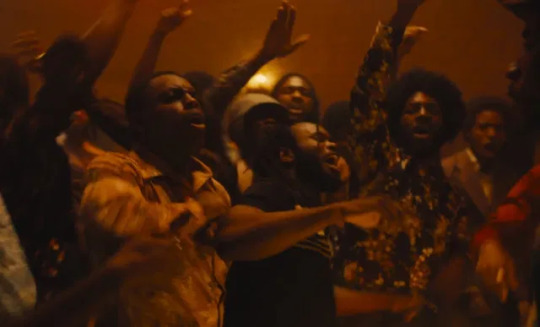
7. Lovers Rock (Steve McQueen)- swear to you I thought: "This is an impeccable depiction of a great house party. The only thing it's missing is the volatile dude who scares away all the girls." And then the volatile dude who scares away all the girls shows up.
In a year short on magic, there are two or three transcendent moments, but none of them can equal the whole crowd singing along to "Silly Games" way after the song has ended. Nothing else crystallizes the film's note of celebration: of music, of community, of safe spaces, of Black skin. I remember moments like that at house parties, and like all celebrations, they eventually make me sad.
6. Crip Camp: A Disability Revolution (Nicole Newnham and James Lebrecht)- I held off on this movie because I thought that I knew what it was. The setup was what I expected: A summer camp for the disabled in the late '60s takes on the spirit of the time and becomes a haven for people who have not felt agency, self-worth, or community anywhere else. But that's the right-place-right-time start of a story that takes these figures into the '80s as they fight for their rights.
If you're anything like my dumb ass, you know about 504 accommodations from the line on a college syllabus that promises equal treatment. If 2020 has taught us anything though, it's that rights are seized, not given, and this is the inspiring story of people who unified to demand what they deserved. Judy Heumann is a civil rights giant, but I'm ashamed to say I didn't know who she was before this film. If it were just a history lesson that wasn't taught in school, Crip Camp would still be valuable, but it's way more than that.
5. Palm Springs (Max Barbakow)- When explaining what is happening to them, Andy Samberg's Nyles twirls his hand at Cristin Milioti's Sara and says, "It's one of those infinite time-loop scenarios." Yeah, one of those. Armed with only a handful of fictional examples, she and the audience know exactly what he means, and the continually inventive screenplay by Andy Siara doesn't have to do any more explaining. In record time, the film accelerates into its premise, involves her, and sets up the conflict while avoiding the claustrophobia of even Groundhog Day. That economy is the strength that allows it to be as funny as it is. By being thrifty with the setup, the savings can go to, say, the couple crashing a plane into a fiery heap with no consequences.
In some accidental ways, this is, of course, a quarantine romance as well. Nyles and Sara frustratingly navigate the tedious wedding as if they are play-acting--which they sort of are--then they push through that sameness to grow for each other, realizing that dependency is not weakness. The best relationships are doing the same thing right now.
Although pointedly superficial--part of the point of why the couple is such a match--and secular--I think the notion of an afterlife would come up at least once--Palm Springs earns the sincerity that it gets around to. And for a movie ironic enough to have a character beg to be impaled so that he doesn't have to sit in traffic, that's no small feat.
4. The Assistant (Kitty Green)- A wonder of Bressonian objectivity and rich observation, The Assistant is the rare film that deals exclusively with emotional depth while not once explaining any emotions. One at a time, the scrape of the Kleenex box might not be so grating, the long hallway trek to the delivery guy might not be so tiring, but this movie gets at the details of how a job can destroy you in ways that add up until you can't even explain them.
3. Promising Young Woman (Emerald Fennell)- In her most incendiary and modern role, Carey Mulligan plays Cassie, which is short for Cassandra, that figure doomed to tell truths that no one else believes. The web-belted boogeyman who ruined her life is Al, short for Alexander, another Greek who is known for his conquests. The revenge story being told here--funny in its darkest moments, dark in its funniest moments--is tight on its surface levels, but it feels as if it's telling a story more archetypal and expansive than that too.
An exciting feature debut for its writer-director Emerald Fennell, the film goes wherever it dares. Its hero has a clear purpose, and it's not surprising that the script is willing to extinguish her anger halfway through. What is surprising is the way it renews and muddies her purpose as she comes into contact with half-a-dozen brilliant one- or two-scene performances. (Do you think Alfred Molina can pull off a lawyer who hates himself so much that he can't sleep? You would be right.)
Promising Young Woman delivers as an interrogation of double standards and rape culture, but in quiet ways it's also about our outsized trust in professionals and the notion that some trauma cannot be overcome.
INSTANT CLASSICS
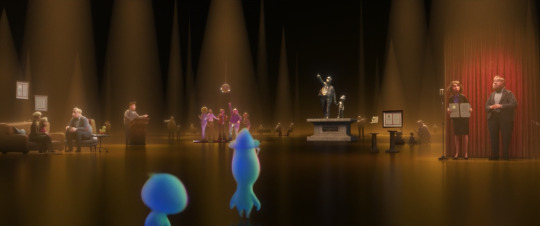
2. Soul (Pete Docter)- When Pete Docter's Up came out, it represented a sort of coronation for Pixar: This was the one that adults could like unabashedly. The one with wordless sequences and dead children and Ed Asner in the lead. But watching it again this week with my daughter, I was surprised by how high-concept and cloying it could be. We choose not to remember the middle part with the goofy dog stuff.
Soul is what Up was supposed to be: honest, mature, stirring. And I don't mean to imply that a family film shouldn't make any concessions to children. But Soul, down to the title, never compromises its own ambition. Besides Coco, it's probably the most credible character study that Pixar has ever made, with all of Joe's growth earned the hard way. Besides Inside Out, it's probably the wittiest comedy that Pixar has ever made, bursting with unforced energy.
There's a twitter fascination going around about Dez, the pigeon-figured barber character whose scene has people gushing, "Crush my windpipe, king" or whatever. Maybe that's what twitter does now, but no one fantasized about any characters in Up. And I count that as progress.
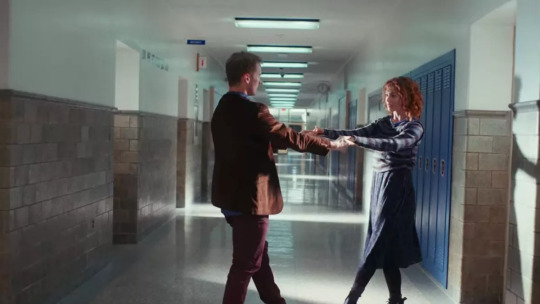
1. I’m Thinking of Ending Things (Charlie Kaufman)- After hearing that our name-shifting protagonist moonlights as an artist, a no-nonsense David Thewlis offers, "I hope you're not an abstract artist." He prefers "paintings that look like photographs" over non-representational mumbo-jumbo. And as Jessie Buckley squirms to try to think of a polite way to talk back, you can tell that Charlie Kaufman has been in the crosshairs of this same conversation. This morose, scary, inscrutable, expressionist rumination is not what the Netflix description says it is at all, and it's going to bother nice people looking for a fun night in. Thank God.
The story goes that Steven Spielberg and George Lucas, when constructing Raiders of the Lost Ark, sought to craft a movie that was "only the good parts" with little of the clunky setup that distracted from action. What we have here is a Charlie Kaufman movie with only the Charlie Kaufman moments, less interested than ever before at holding one's hand. The biting humor is here, sometimes aimed at philistines like the David Thewlis character above, sometimes at the niceties that we insist upon. The lonely horror of everyday life is here, in the form of missed calls from oneself or the interruption of an inner monologue. Of course, communicating the overwhelming crush of time, both unknowable and familiar, is the raison d'etre.
A new pet motif seems to be the way that we don't even own our own knowledge. The Young Woman recites "Bonedog" by Eva H.D., which she claims/thinks she wrote, only to find Jake's book open to that page, next to a Pauline Kael book that contains a Woman Under the Influence review that she seems to have internalized later. When Jake muses about Wordsworth's "Lucy Poems," it starts as a way to pass the time, then it becomes a way to lord his education over her, then it becomes a compliment because the subject resembles her, then it becomes a way to let her know that, in the grand scheme of things, she isn't that special at all. This film jerks the viewer through a similar wintry cycle and leaves him with his own thoughts. It's not a pretty picture, but it doesn't look like anything else.
8 notes
·
View notes
Photo
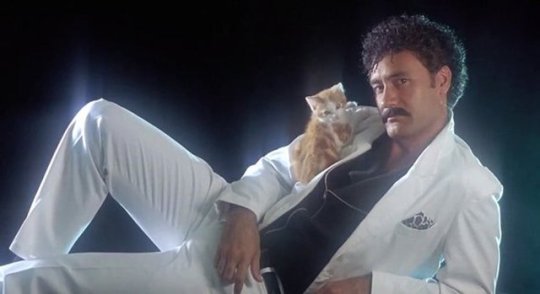
Thanks, Taika of my dreams
Couple of nights ago I had a weird dream. I am on four different psycoactive meds and my dreams have always been colourful to begin with, so weird dreams are not something extraordinary in this household of ours and our mornings usually begin like: “hey, husband, I had this crazy dream today in which Vlad Putin was an aquatic monster and we were seventies cops with horrible staches and fur coats and he tried to kill us by a river and we shot him but he didn’t died so I panicked and just switched to another tv channel and there was a riot in a fancy old theatre on our kitchen table because Jennifer Lawrence and David Tennant had stopped performing a live episode of Doctor Who to elope and live to the fullest their secret romance” (I actually dreamt that and I don’t even watch Dr. Who). But this dream I am talking about now was awfully dull. Yeah weird, but dull. Until...
Before I get to the details of my dream let me introduce you to the man on this picture. This is Taika “I do whatever the fuck I want because I don’t need your validation to know I am cool as fudge” Waititi, better known lately for directing the last instalment to Thor’s plot arch in the Marvel Cinematic Universe, the colourful joy and delight full of flag waving and redemption that is Thor: Ragnarok.
We, my husband and I, love Taika Waititi since we first met him a couple of years ago in What We Do In The Shadows, co directed with Jemaine Clement from Flight of the Conchords (and they both star in the movie with hilarious results). What?! You haven’t seen it?! One of the greatest fantasy comedies of our times?! Go now, I’ll wait.
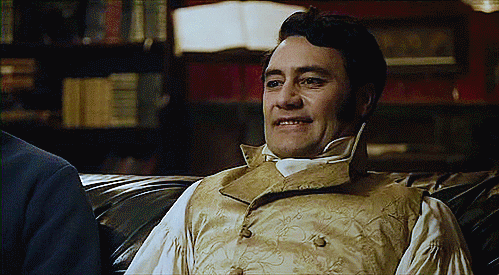
(Now that you’ve seen the movie you now that’s Taika in it as Viago, waiting for you to fulfil your task)
No, but seriously, we love him. If we were tu bump into him on the street we would invite him home and feed him and make sure he is all warm and cozy and tell him what a talented, lovable huge dork he is and that we love almost anything he does. Proof is, I only got interest in Ragnarok because of him because i hated so much the other two that I couldn’t finish them and that is not something that happens to me easily, not being able to finish a movie. AND I LAUGHED MY ASS OF AND I HAD THE GREATEST TIME WATCHING THOR: RAGNAROK EVEN ON HEAVY MEDS AND WITH A DEPRESSION. Because this man knows his shit when it comes to comedy and that ain’t easy.
Well, you are now acquainted with one of the most charismatic directors, writers and actors, with one of the most original and unapologetic public personas of this days. You’re welcome.
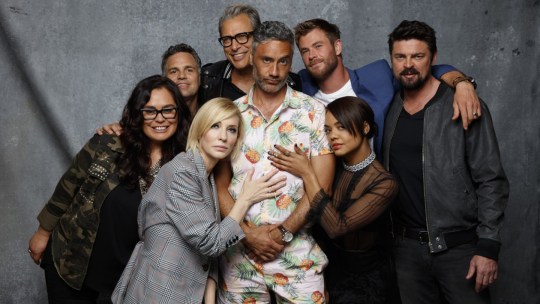
Look at that, a happy family with the mischievous son conveniently locked away LOL
Back to my dream!
I was at the cinema and my husband and I had set up one of my friends for a date without her knowing. It was weird because the three of us were sitting apart in little clusters of movie theatre seats, four seats for each, and from where we were sitting none of use could see the screen at all but somehow (dream logic) we still were catching every detail of the movie. All the lights were on and people was talking, it was kind of a special event in which you were welcome to bring your own food and sit wherever you pleased. We were bored and my friend wanted to finish the food and leave because the movie was stressing us out. Apparently, it was about kidnapping children but I didn’t know that until that moment (the me on my dream seemed to know, though). Then, Haley Joel Osment does his entrance in a nerdy outfit and produces a blanket and a picnic basket from a backpack. Yeah, I know, dream logic, ok? Haley Joel Osment was the guy me and my husband had set my friend up with.
So by then, the me inside the dream is ok with everything, it’s her plan after all, but the dreaming me is done with this shit and is bored af. So I decide I’m leaving and I accidentally end up inside the movie I DON’T KNOW HOW.
And there’s my husband and my friend and Haley Joel Osment and they’re all like “this movie is bad karma we out” and suddenly I’m alone and poor Naomi Watts tells me she’s done making the freaked out mom and she begs for me to take her role so she can be the evil mom that wants my kid because her daughter died. I don’t even have kids irl life and I don’t belong in the movie and now I want to know whats happens with my friend and HJO because against all odds it looked like they liked each other?? But Naomi is so beautiful and talented and she looks so done that I say ok and I do the freaked out mom followed around the big ass suburb house full of broken toys by the evil mom aka Naomi Watts. And I was really terrified and exhausted but every now and thens we would stop and OOC chat for a while and she would compliment me on my performance, thank me for the chance or complain about sandwiches in the catering today and I would say “But Nay, I’m only here because some psycomagical shit I didn’t event get to see the set” and she would apologise so much as if she had been unwillingly racist or something. And the we’d resume the chasing.
So, apparently, the plot of the movie was that Naomi and her husband had lost a daughter and now wanted mine (that wasn’t there at all), but during the chasing around the house two things were discovered: a skeletal child that ran away from us, thankfully, and a live one, a seven-year-old boy, naked, locked in a closet. I took the boy in my arms an resumed my race around the house but this time I was pissed because why did they wanted to steal a child if they already had one that they were neglecting? I was so pissed that I forgot to run and started walking. I heard I siren downstairs and thought it was the cops but it was an ambulance toy. it was broken and I was afraid it would catch fire, so I picked it up and switched it off, all the while carrying a sobbing, naked kid. But then the sirens resumed and there were blue and red colour in the entrance hall so I ran there and the door stormed opened and there were the Andes fro Hot Fuzz in SWAT gear and...
MOTHER FLIPPIN TAIKA WAITITI IN A SIXTIES SPY POSE POINTING WITH HIS HANDS TOGETHER AND NO GUN AT ALL
He is sporting a black suit with satin lapels that looks very expensive, but he wears white tennis slippers, a black cotton t-shirt and an ugly felt pin of a flower over his chest pocket, with ridiculously small deep blue petals. I am staring at the pin when he breaks his ridiculous pose and says IN HIS VIAGO VOICE:
“I’m the Goldblum’s daughter godfather, what happened?” (yeah, the dreaming me was also like whaaaaaaat lolololol)
“They tried to steal my daughter. I found him in a closet. The other is dead”
He took the boy while saying “I always suspected them” and he hugged him while whispering “It’s ok now” to his ear. Still in his Viago voice. Then he looked at me and he realised I’d been through hell and (dream logic) he hugged me simultaneously and told me everything was going to be alright. And I woke up.
Now hear me out, babies, hear me out. I’ve been through a lot for this past few years and when I had that dream, I was on all day in bed 5 day streak after a faint hint of recovery that lasted barely a week and was preceded of months and months of oversleeping and only showering once in two months, medication with undesirable side effects, and well... your average depressive state.
When I woke up from that dream after running up and down the stairs of a house full of broken but never discarded toys, protecting a daughter that wasn’t there, in a role that wasn’t mine, in a place I had no idea how I had ended up in, after saving a naked, terrified kid, after seeing another one go, Taika hugged me and told me it was alright. The very personification of Comedy and Humor came to save me and held me and told me that it was all over now. And I felt such relief when I woke up...
Thanks, Taika of my dreams. Thank you for telling me that things are starting to work like they are supposed to inside my head because I couldn’t tell.
Also, this is very important, if someone could please draw Taika in The Pose from the end? That would be the greatest service ever done for the human race. It’s not personal. Thanks.
#somebody thank taika on my behalf for saving me and the non skeletal child#sombody tell jeff goldblum it's not personal my brain is just random when it comes to dreams#everybody please appreciate the talented people aforementioned by their deeds not by what my shitty subcounciousness made them do#except taika because he is perfect in my dream and everybody should love him always forever#Taika Waititi#jeff goldblum#naomi watts#thor ragnarok#what we do in the shadows#viago#jemaine clement#weird dreams#creepy dream#mental health#mental illnes#medication#taika waititi apreciation#dream#dreams#haley joel osment#set up date#child kidnapping#cinema#movies#movie#thriller#mental health awareness#child abuse#the andes from hot fuzz#hot fuzz
7 notes
·
View notes
Text
In general, my experiences during these short bursts of time in the states are always memorable because they are so abbreviated, and therefore I have to really make the most of every moment. In my brief moments of downtime I a.) kept going to the Au Bon Pain next to my DC hotel to get giant iced teas and breakfast sandwiches and b.) watched some domestic cable news, which let’s face it, is pretty terrifying these days. The programming is interrupted by catheter and other medical device commercials, which are clues I should not be watching.
Highlights that I can piece together through the jet lag:
The Washington Half
Finally visited the Blacksonian — the new Smithsonian National Museum of African American History and Culture — on the day I landed in DC. Eyes still bloodshot from the flight and jet lag setting in, Matt Thompson, his partner Bryan and I powered through and saw crazy amazing stuff like the Parliament Funkadelic MOTHERSHIP. Yes, yes we did.
Friend Claire came down from New York for a hang. We lingered over a three and a half hour dinner at a mezcal place, not because of the meal but because we had some epic catching up to do.
Hanson, you know, of mmmmbop fame from 20 years ago, played a Tiny Desk Concert on the first day I went back to work in DC. They actually played two, because they recorded their very special Christmas Tiny Desk, too. Taylor (the middle one) and I joked around a bit about how the dinosaur on his Christmas sweater was wearing the same sweater, creating some sort of ugly Christmas sweater matrix.
One of my ex-work spouses, Javaun, took a train up from Lynchburg (where he now lives) to spend Tuesday evening hanging out and eating barbecue and drinking beers together. I can’t even remember all the ground we covered because, beer.
Don Gonyea gave me advice about work and life, which is always much appreciated.
Finally ate at the State Department cafeteria in Foggy Bottom — a bucket list item.
Because I am support the notion of spending money to save time, I hired April Yvonne, friend of my always glam friend Angie Goff, to shop for me. She picked out racks of clothes in a few Georgetown shops in advance, so all I had to do was try things on and make decisions. The whole excursion only took two hours in total and I was hella wardrobed for the weekend and work by the end. Endorse.
The Austin Half
Met the following babies who have joined us since I’d last been in Austin: Baby Adaline. Baby Thomas. Baby Marcella. Baby EJ. Baby Franklin. Toddler Hattie. Toddler Emma. Missed Baby Sam, who is fattening up in a NICU right now, but boy was I overjoyed to see his parents.
Sam’s dad Jimmy is my ultimate favorite eating partner. He also cooks delicious food and personally catered my engagement party with Spanish tapas since he trained to be a chef in the kitchens of Spain and Charleston, SC. Because of serendipity, the weekend I was in Austin was also the Far East Food Festival, in which some sixty Austin restaurants served up healthy portions of various Asian creations and Jimmy was judging the food. He added me as a judge so we CHOWED DOWN until the heat and the food consumption did us in. I had to quit early because I just couldn’t eat anymore. Embarrassing, but true.
Due to the abbreviated time, there were extra meals sandwiched in. On Friday I had a cheeseburger appetizer at P Terry’s while en route to Cooper’s barbecue where we disappeared pounds of brisket, sausage and ribs plus jalapeno mac-and-cheese, potato salad and the standard vat of pickles plus white bread. (Also Cooper’s offers free beans!) This was my favorite meal because of the strong appetizer IN THE CAR ON THE WAY to BBQ and my reliable eating buddies, Blake and Justin, joined to work up some serious meat sweats. I probably could have recovered for third lunch after this but we had do disperse.
Reunited with the dim sum club on Saturday morning to eat our faces off.
Did not see my oracle, Harry Whittington (the guy Dick Cheney accidentally shot in the face) but did see Bachelor Brad, who we seem to run into in Austin pretty much all the time. Is he everywhere? Is it because he’s a twin?
Surprised my goddaughter Marion Cass at her school, which led to second graders drawing me a bunch of butterflies and teaching me how to play a game called Sleeping Queen (need to get this for my daughters). Marion Cass also had me over to her house Sunday afternoon where she showed me how she can do things like SPLITS IN THE AIR because, gymnastics and being seven.
The purpose of this Austin return was to attend Friend Todd’s wedding. Did it, and so glad, because I love weddings! I also get to take partial credit for this union in the butterfly-flaps-its-wings kind of way, because I brought Todd to the Texas Tribune in 2009 as we were starting it. Here’s what happened: He was a weirdo who was teaching me Final Cut Pro as a part of a class I took at Austin Film School. I decided he was adorable even though I’m pretty sure he didn’t wash his hair at the time and was always railing about the dangers of aspartame and fluoride. Started calling him Hot Toddy behind his back (he later confronted me about this and yep, guilty) and convinced our boss Evan to give him a job at the Tribune because we were in wild wild west days of throwing jobs around. It was through this job that he met Carsi, his bride.
Reeve and I ran the hike and bike trail and joked around the whole time, just like the good ol’ days.
Sent up a flare in DC, and again in Austin, for big group happy hours. Both led to the happiest reunions, predictably. In Austin, April, my BFF from those halcyon days of my partying/Texas lege-covering twenties in Austin, HAPPENED to also be back after moving away to Toronto a few years ago. We got to see each other for about twenty minutes. I’ll take it.
The last time I was in America, I was two people. This time it was just me and my pump, which had to be used every few hours for the duration of the nine-day trip, the bottles and bags of expressed milk piling up in my respective hotel freezers until I had so much that I paid $400 in heavy baggage fees to bring all that liquid gold home. In order to keep it frozen while flying, I snuck in a trip to Ace Hardware in DC and got a giant padded cooler bag, which ended up being perfect. Thanks, Ace Hardware.
#gallery-0-5 { margin: auto; } #gallery-0-5 .gallery-item { float: left; margin-top: 10px; text-align: center; width: 50%; } #gallery-0-5 img { border: 2px solid #cfcfcf; } #gallery-0-5 .gallery-caption { margin-left: 0; } /* see gallery_shortcode() in wp-includes/media.php */
First stop upon getting home: Matt Thompson
Blacksonian.
Mothership!
Hanson’s Christmas sweaters.
Kevin and David at work
Tuesday night drinking club reunites
Javaun and Chris
Don Gonyea, everybody.
Nate Rott put this cooler together for my milk.
My work product after three days.
With my god baby, who’s so big now
Surprising second graders.
The girls liked the Korean crayons
Worth flying 8,000 miles, yknow?
We cleaned up for Todd.
Snack at Todd’s wedding
Just married
Watching Austin’s pride parade from the wedding venue
Baby EJ’s first dim sum.
Reeve meets baby Thomas at a brunch
Baby Adaline, one of many babies I met
Hotel room hang with Nurse and the brood
Hattie in my Austin shower.
First Time To Trump's America In general, my experiences during these short bursts of time in the states are always memorable because they are so abbreviated, and therefore I have to really make the most of every moment.
#April Yvonne#Austin#babies#Bachelor Brad#breast pump#dim sum#Far East Food Fest#god daughter#Hanson#happy hour#Harry Whittington#Jimmy Stewart#Marion Cass#matt thompson#milk#P Terry&039;s#reeve hamilton#shopping#Smithsonian#texas barbecue#tiny desk concert#Toddy Wiseman#wedding
0 notes